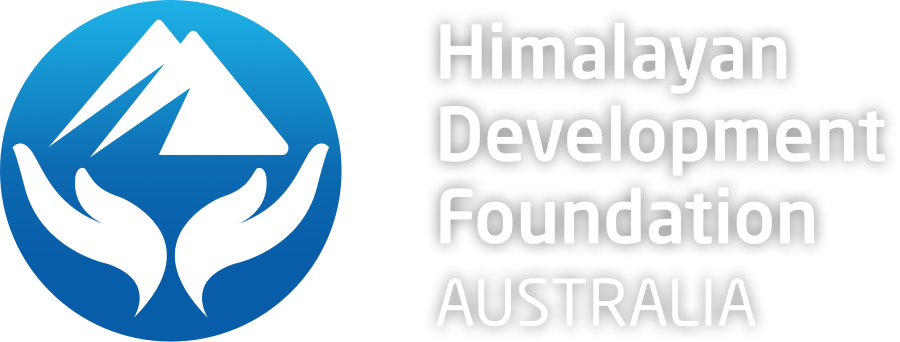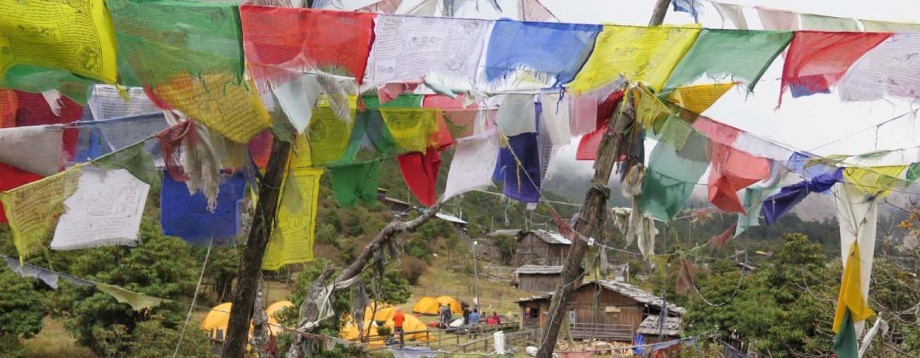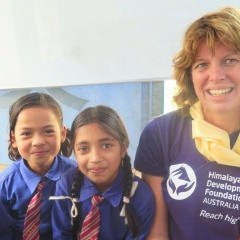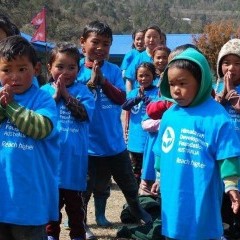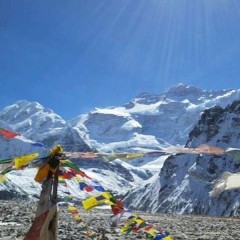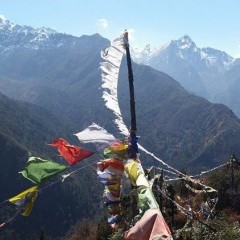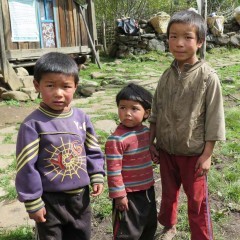Ghunsa Village
The Ghunsa Village lies at 3,400m altitude in the remote Mechi Zone in the far East of Nepal in the Taplejung District, bordering India further to the East. Ghunsa is the highest permanent settlement in the valley, immediately to the north lies Tibet, which is accessed via 5,500 metre high passes.
In the side valleys surrounding Ghunsa numerous small family dwellings exist and it is estimated there are 120-160 children in the alpine areas. Many of these children live a number of days or hours walk from the Ghunsa School and are unable to attend school.
Another issue in the immediate area is schools of unsustainable size, for example the village of Gybla is not of sufficient size (only 5 students) to support a quality education. When the quality of education deteriorates the parents often withdraw their children from school and thus the few available resources are reduced further due to lack of student numbers.
The quality of education offered is a real issue, which negatively impacts the parental and community support for schools.
Overall Project
This HDFA Ghunsa Village Development plan focuses on 3 key areas, of which education is the initial focus.
- Education
- Healthcare
- Livelihood improvement
Education: When we first visited Ghunsa in 2013, we were horrified by the conditions that the students at Ghunsa Lower Secondary School (GLSS) lived in. Up to 8 students lived on a concrete floor with only a piece of wood and a 5mm foam mat between them and the ground. Further to this, school attendance for students in the valley was at only 25%. The local community knew that change was needed but lacked the ability to implement this all by themselves. After extenisve consultation with the School Management Committee (SMC) and the wider community, we worked alongside the people of Ghunsa to rebuild and refit their school and hostel facilities, providing a safe and inviting place for students to both live and study. This rebuild occured in July 2015. In 2018, the local community embarked on another building project at GLSS to meet the demands from the people of the valley who wanted to send their children to the school. This project saw a second story added to one of the three main buildings at the school, providing further accommodation for students whose families did not reside in Ghunsa. In 2018, for the first time in the regions history, 100% of school aged children are attending school, giving them a better chance at a brighter future!
HDFA understands that a quality education does not come about because of the buildings and facilities alone. That is why we have continued to work with the teaching staff to ensure they have access to quality teacher professional learning opportunities and with the SMC to enable them to support the good leadership and governance of GLSS.
Healthcare: HDFA is supporting community nurses to be trained and stationed at Ghunsa to offer medical support to the wider local area and the increased numbers of students. We have negotiated with the local district government to provide the base salary and medications for these staff, with HDFA assisting with top up supplies and annual training support. Since beginning our support of the community in 2014, the health post has been providing maternal and basic health care as well as roving patrols to nearby Gyabla, Foley villages. In 2018, the community, with local government support, was able to build a new purpose built health post, freeing up important space at the school where it used to be housed. The new health post is a major turning point for the community as it has been implemented and funded locally, reducing their reliance on foreign NGO support. HDFA is proud of the community for driving change from within! We continue to work with the health post workers on training and resources.
Economic and livelihood development: This is crucial to the future success of the region. HDFA has commissioned a website to promote tourism in the area. The website will serve as a live virtual guidebook. It will deliver promotion of local tea-houses, guides and trekking companies, information on trails including times and an interactive map and trek planning tool, and availability of rooms at tea-houses. A similar approach has been implemented for tea-houses to advertise themselves on an information portal in the Manaslu Circuit area in central Nepal and has seen a three-fold increase in trekker numbers in only two years. We believe that by offering training for tea-house workers and basic business/governance issues we can engage with the community and deliver other needed outcomes such as basic hygiene and healthcare under the auspices of tourism training.
Infrastructure: Education infrastructure has made education available to remote students for the first time. We have a medium term plan to roll out wi-fi in the region by partnering with a Nepalese organisation that has successfully delivered this transformational change in four other areas of Nepal. In the meantime, the HDFA Kanchenjunga Coordinator, Mingma Dandu Sherpa, has been instrumental in rallying Nepal Telecom and the local government to have a 2G phone tower installed in 2019 which is serving the people of Ghunsa, Phole and Gyabla.
Longer term, we envisage that the internet will serve multiple objectives:
- engagement of children with the classroom
- online medical support to assist the community nurses
- online teacher support to deliver more engaging course work
- allow people to stay in their village and be connected
- take away the isolation factor in relation to relatives all over Nepal and the world
- improve commerce
- allow direct communications between sponsors and recipients.

